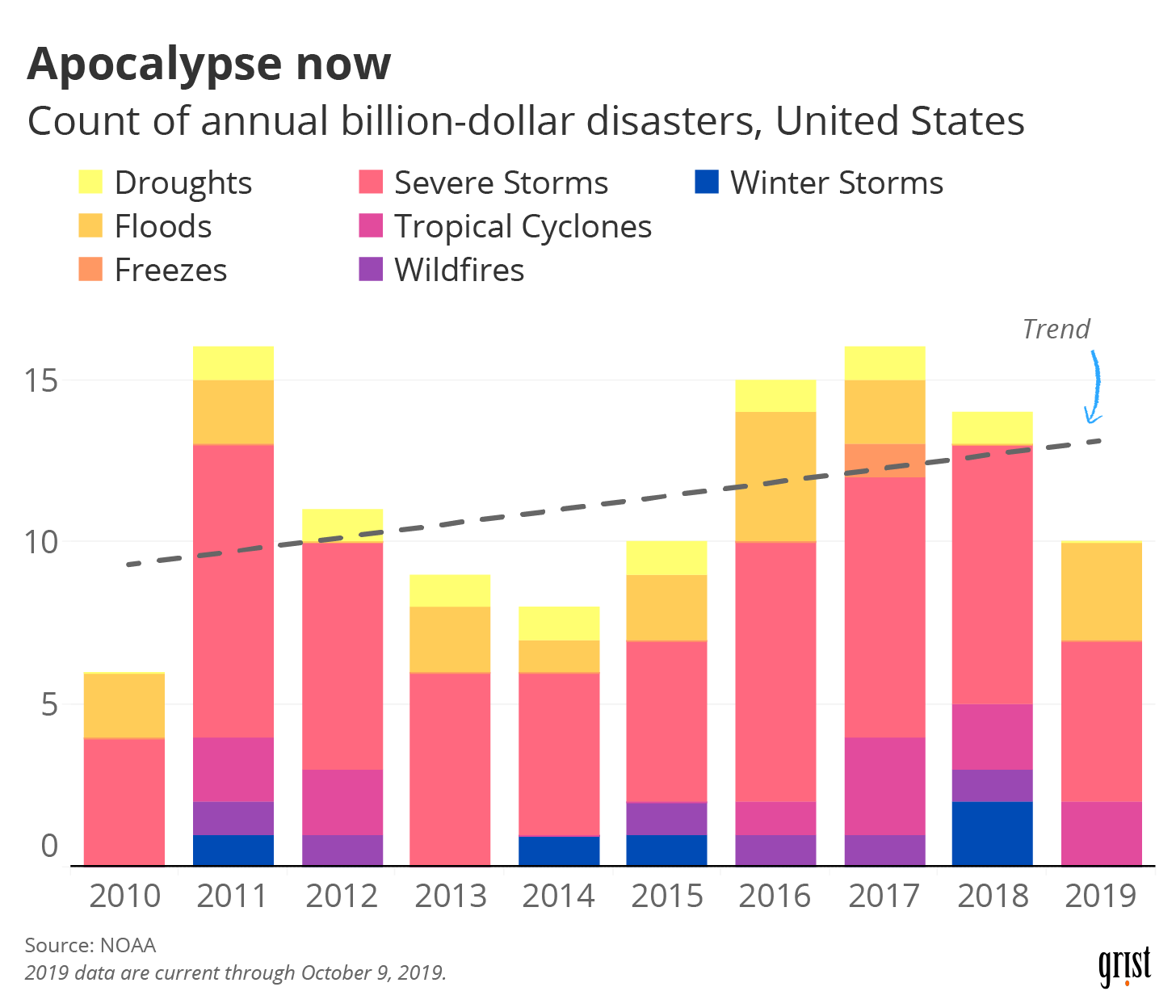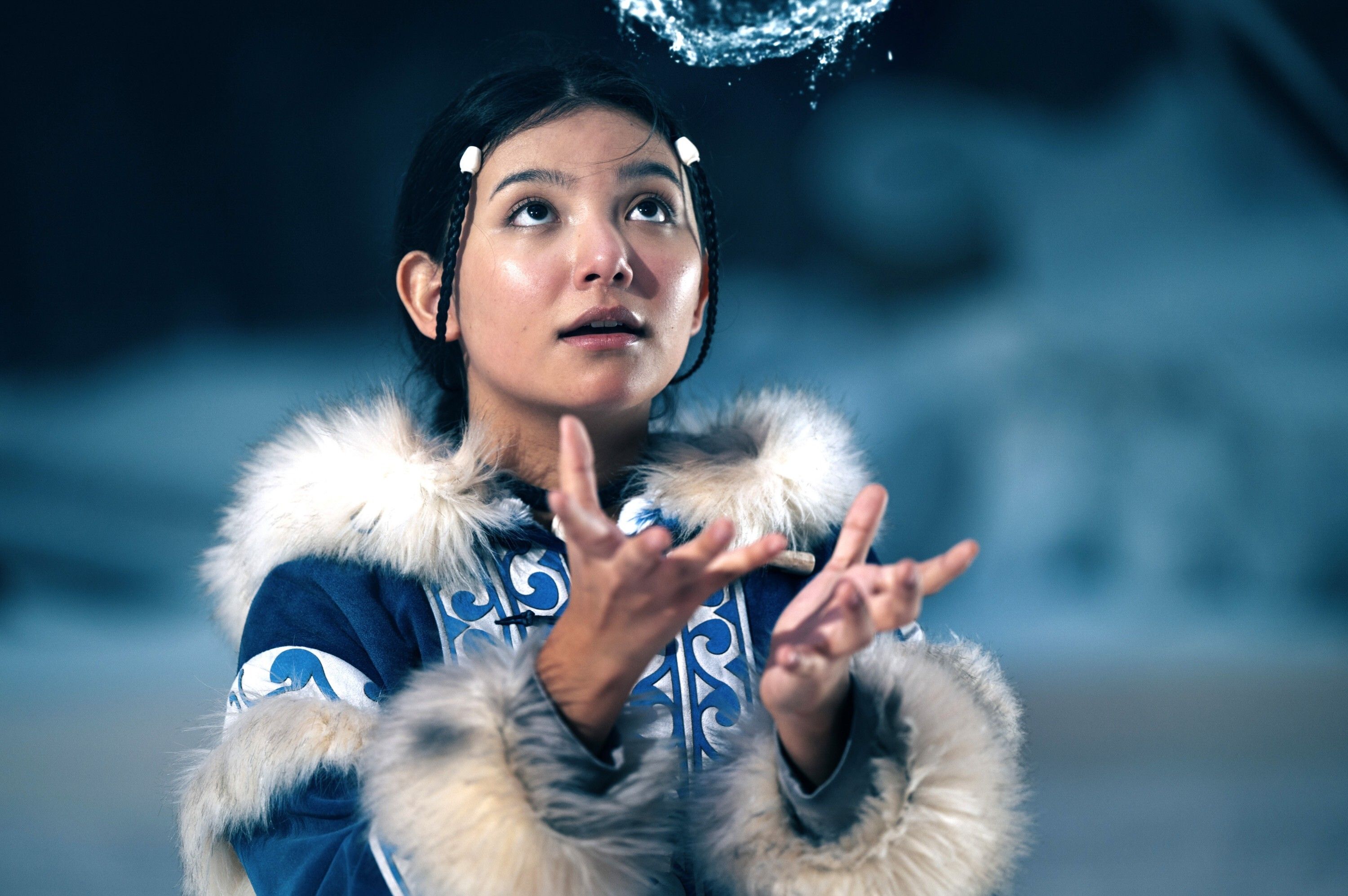Virtual Reality Climate Education Initiative
- Canada
- For-profit, including B-Corp or similar models
Many people across the globe cannot fathom the devastation that climate change is bringing to 3rd world countries, let alone, in their own country.
According to the United Nations: "Rising temperatures are fueling environmental degradation, natural disasters, weather extremes, food and water insecurity, economic disruption, conflict, and terrorism. Sea levels are rising, the Arctic is melting, coral reefs are dying, oceans are acidifying, and forests are burning."
With virtual reality, we can simulate many of these devastating effects and teach youth about what the actual impacts are using interactive, immersive storytelling and practical applications.
These charts tell a story about how dire our consequences will be if we don't act immediately, so this means education will play a huge part in addressing lack of knowledge and closing the knowledge gaps. :no_upscale()/cdn.vox-cdn.com/uploads/chorus_asset/file/21865796/Screen_Shot_2020_09_08_at_9.59.38_PM.png)


When researching virtual reality (VR) for a school in Canada this past spring, we discovered there are a lot of different places and pieces of information we can develop into an effective curriculum, including the VR videos from the United Nations Sustainable Development Goals program. Since we are located in the Indigenous territory of Akwesasne, we can consult with local earth guardians and incorporate traditional Indigenous teachings in our curriculum as well. Lifting up their voices is crucial at this point in the climate crisis.

There was a study conducted by PwC that share the following statistics about virtual reality training that give us insights into how effective it actually is:
We believe that tackling the climate crisis means getting into schools with curriculum we have developed and piloted in our summer camps will help schools roll out effective storytelling tactics with VR, 3D and immersive storytelling. We need educators who understand the technology in the education space and we have been in this space for 2.5 years. So our knowledge of VR capabilities, resources and experience would make us able to take this opportunity to the next level.
Our solution is a fully developed climate curriculum, developed for virtual reality for a 5 day summer camp, to be piloted this summer and rolled out into schools in the Fall.
According to research from Penn State University entitled "Virtual reality better than video for evoking fear, spurring climate action":
"Depicting worst-case climate scenarios like expanding deserts and dying coral reefs may better motivate people to support environmental policies when delivered via virtual reality, according to a research team that studied how VR and message framing affect the impact of environmental advocacy communications. The study findings may help advocacy groups decide how best to frame and deliver their messages."
There is an increase in worry in the world's youth. Many are seeing the consequential impacts of climate devestation and are acting by protesting and speaking up. But how do we get the older generations to listen? By creating a resourceful program that will help young people share their knowledge, their expertise and impact of the VR experience in order to engage a laissez-faire attitude from Boomers.
We hope that by reaching young people, we will see more action and the effect of immersion on their ability to discuss and share their own knowlege in how to combat this very scary future.
Both cofounders have worked on developing a pilot education program for adults to teach them the skills of the future, it was called the Ontario Emerging Jobs Institute and the team put together curriculum for 4 programs for 10 week bootcamps. Students learned things like AgTech, AI, VR, Business Skills, Digital Skills and much more. That program taught over 130 adults and most of them graduated. We worked with subject matter experts to develop the curriculum and the total grant for this project was $475,000.
We have done this before and having spent the past 4 years teaching tech skills to youth as a contractor for Code Next, Kelly has been able to understand how youth are learning these days. Chatnie has a Master's Degree in IT Management and will be participating in an AI train the trainer program this summer in South Dakota so she can bring her knowledge of AI back to her community of Akwesasne this fall.
- Provide the skills that people need to thrive in both their community and a complex world, including social-emotional competencies, problem-solving, and literacy around new technologies such as AI.
- 1. No Poverty
- 2. Zero Hunger
- 3. Good Health and Well-Being
- 4. Quality Education
- 5. Gender Equality
- 6. Clean Water and Sanitation
- 7. Affordable and Clean Energy
- 8. Decent Work and Economic Growth
- 9. Industry, Innovation, and Infrastructure
- 10. Reduced Inequalities
- 11. Sustainable Cities and Communities
- 12. Responsible Consumption and Production
- 13. Climate Action
- 14. Life Below Water
- 15. Life on Land
- 16. Peace, Justice, and Strong Institutions
- 17. Partnerships for the Goals
- Prototype
Our solution is a fully developed climate curriculum, developed for virtual reality for a 5 day summer camp, to be piloted this summer and rolled out into schools in the Fall.
We have conducted research on available climate assets and tested some of these curriculum assets out:
Browser-based
EN
Browser-based
EN/FR
You-Tube
EN
1/5 Not enough interactivity and a lot of dialogue
Réalité Virtuelle : Vivez l’expédition de Matthieu Tordeur au Pôle Sud
YouTube
FR/EN
3/5 Good content but too long for students
Browser-based
EN
3/5 Good content but not related to our unit of inquiry
ArtSteps Climate Virtual Museums
Browser-based
EN/Other
VR Classroom setups
Browser-based
EN
5/5 Very good application with a lot of potential, if we could create our own virtual universe with the integrated content that would be great.
- VR Tours in France: https://www.youtube.com/@TV5MONDE/search?query=360
- Greenpeace, a Journey to the Arctic
- Arctic Halocline
- Global Warming - Signs & Effects
- UN Meet Your Carbon Footprint: https://www.unep.org/news-and-stories/story/experience-your-carbon-footprint-vr
- NASA - the Call for Science
- Demonstrate French content from NFB: https://www.onf.ca/interactif/ (Parliament: https://www.onf.ca/interactif/parlement/)
- https://ifdigital.institutfran...
- https://yukonwildlife.ca/teach...
We are applying to Solve because we understand how prescient the climate crisis is and we know that by working with a leading institution to develop this project, we will get highly-impactful advice, doors opening for us, resources (financial, legal, etc) and partnerships that we normally wouldn't get access to.
We would love to be connected to others in the VR and climate space but we also can bring an Indigenous-lens to our curriculum development, which means it will be even more effective for educating youth on our climate crisis.
- Business Model (e.g. product-market fit, strategy & development)
- Financial (e.g. accounting practices, pitching to investors)
- Legal or Regulatory Matters
- Monitoring & Evaluation (e.g. collecting/using data, measuring impact)
- Public Relations (e.g. branding/marketing strategy, social and global media)
What makes our solution innovative is that we spent months researching VR and curriculum for climate and came up with not many open options for a comprehensive and complete solution. We know that being in Indigenous territory as well, that we can pull on existing resources that have been developed locally and tap into those Indigenous creators who want to help us create effective curriculum.
With our experience in working with youth in the VR space, we know what their needs and demands are for engagement. We have these relationships and trust built out with parents who would be excited to be a part of this project.
Akwesasne has had a superhero renaissance lately and maybe we can look to those heroes to incorporate them into our climate solutions and storytelling:
We refer to virtual reality as an empathy machine. It allows us to experience things more intensely than if we were learning through traditional means or through e-learning such as illustrated in the chart below:

We can also design sustainable solutions using VR, such as in City-level design and simulations to visualize the impacts of design.
We will conduct pre and post surveys to understand the tangible impacts of this program such as learner engagement, knowledge retention, impact assessments and much more.
8 years ago, I founded a coding program called Code Heroes that did just this type of assessment for our funder: https://sdccornwall.ca/wp-cont...
Our core technology is everything from virtual reality devices to 3D and spatial technology. Our typical VR headset is the Meta Quest 2 but we are preparing to purchase a new fleet of Meta Quest 3 devices that will allow us to use Mixed Reality. Great for science experiments too.
We will use videos from YouTube and apps from the Meta Quest store to power our curriculum.
- A new application of an existing technology
- Ancestral Technology & Practices
- Artificial Intelligence / Machine Learning
- Audiovisual Media
- Imaging and Sensor Technology
- Virtual Reality / Augmented Reality
- Canada
- United States
Kelly Bergeron (CEO/Cofounder)
Kelly has over 20 years of tech experience, edtech curriculum development and instruction. She has worked all over the globe and moved back to her hometown of Cornwall to bring innovative opportunities to her community. Kelly was nominated for College Ontario Premier's Awards in Tech in 2018.
Chatnie Herne (CTO/Cofounder)
Chatnie graduated with a Masters of IT Management with Distinction from SUNY Potsdam and has over 10 years experience in tech, policy in government, non-profit sectors and finance. Chatnie placed in the top 1.5% in Pow Wow Pitch Competition of 2500 Indigenous Entrepreneurs across Turtle Island.
We have been working on the climate curriculum project for 3 months. We have been in the virtual technology space for 2.5 years and in the educational technology space for 30 years (combined).
Diversity is key in company, since we are 100% female-founded and 51% Indigenous-owned. Our headquarters is located in Akwesasne, Ontario and so our responsibility to diverse peoples is key. We also understand how gender and racial diversity is key in understanding problems from the ground up, since diverse perspectives can even offer more in terms of insights that homogenous teams don't have.
We have both respected our team's diversity and want to ensure we work toward reconciliation for Indigenous peoples.
We are a VR rental company and studio. We make our revenue off the rental of VR headsets, which eliminates waste by re-use and refurbishment (we buy refurbished devices). So the circular economy is built into our revenue model.
Our studio allows us to rent the space for parties (and we have someone who manages it), trainings, fitness classes and interactive media events. We use the space to bring people together for a fun time, using technology. Many of our clients bring in their children who may have disabilities or be on the spectrum, so we love seeing the joy VR brings them.
Our summer camps are a new feature but they are popular. We charge $250 a week for students to attend and during that week, we will spend a maximum of 1.5 hours a day in VR with other activities taking place in the space.
- Organizations (B2B)
When we worked on the Ontario Emerging Jobs Institute we were able to raise over $500,000 for the project through grants.
This project will be funded by camp registrations and we will continue to apply for grants throughout the year, hopefully raising enough to also buy a van to convert to a VR Climate Education Studio to transport our tech and program across North America. The provincial and federal governments have grants for these types of programs, especially if we roll something out that is successful this summer!

